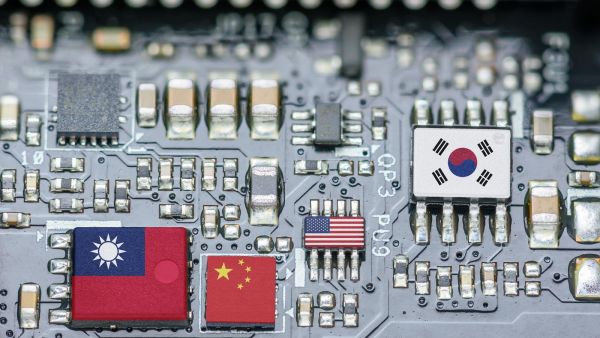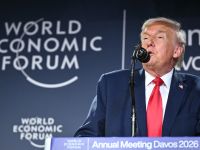Deadline on China export controls moratorium for S Korean factories coming up
ALBAWABA – The governments of the United States (U.S.) and South Korea are looking to introduce exemptions for South Korean companies with factories operating in China, from China export controls and restrictions, Business Korea reported on Thursday.
A U.S. official, on May 10, said that the government is looking into lightening restrictions on advanced semiconductor technology so that they apply only to equipment above certain specifications.
Other options also include capping the level of semiconductors that can be produced by Korean chipmakers in China, according to Business Korea.
Several South Korean companies run facilities in China, including tech giant Samsung Electronics and SK Hynix.
These companies are operating their factories there under a temporary one-year moratorium on U.S. export controls. It was issued in October 2022, the Korean newspaper explained.
A moratorium is a temporary suspension of or exemption from restrictions.
In this case, the moratorium was issued specifically for South Korean companies, to exempt them from the restrictions imposed by the U.S. on China.
It gave them leeway to import the tech they need for their production processes and allowed them to export to the U.S.
However, the one-year moratorium is almost over.
Ahead of the deadline, Seoul has now officially engaged with the U.S. to find a solution for South Korean factories in China.
"We are in close consultation with the United States but I can’t confirm anything," said an official of the Korean Ministry of Trade, Industry and Energy.
It is important to resolve all uncertainties facing “Korean” companies operating in China, the official – unnamed by Business Korea – added.
The aim is to not distribute their production, he underlined, reaffirming that the "U.S. authorities are fully aware of what we [South Korea] want."
Background: China export controls
Last October, the U.S. banned Chinese companies from buying advanced chips and chip-making equipment without licensing.
As of February this year, President Joe Biden’s Administration has also been working on more restrictions on outbound U.S. investments to China, especially in tech and Artificial Intelligence (A.I.), according to The New York Times.
The Cabinet is reportedly closely monitoring inbound investments from China.
On the local front, the U.S. has made significant strides in supporting the American tech and chip-making sectors.
In August last year, the Congress of the United States passed the CHIPS Act, which allocates more than $52 billion to advance the American semiconductor sector.

Two months later, the prohibitions on U.S. semiconductor exports were introduced, in an attempt to curb adversarial competition with economies and countries, like China.
Since announcing the ban last year, several countries have aligned with the U.S., including Japan and the Netherlands.
Impact of China export controls
On March 22, US Secretary of Commerce Gina Raimondo stated that the “CHIPS Act is how we [the U.S.] plan to expand the technological and national security advantages of America and our allies.”
“These guardrails will help ensure we stay ahead of adversaries for decades to come,” she added.
In 2019, the U.S. Bureau of Industry and Security (BIS) reviewed $6.8 billion worth of semiconductor software and technology exports to China.
However, the numbers increased dramatically in 2020; to $106.1 billion, and 2021; to $544.9 billion.
If anything, this explosive increase signalled to the U.S. that China is repositioning to make groundbreaking leaps in the chip-making industry.
The U.S., Taiwan, South Korea and Japan all hold stakes in the ongoing chip-wars.







